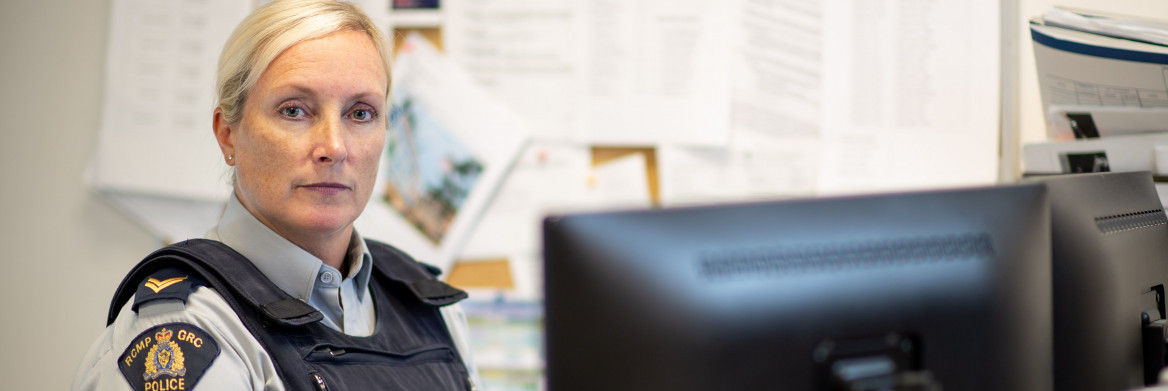Related link
The first time RCMP Cpl. Lynn Saulnier cried after finding out three of her colleagues were killed in the line of duty was at the dry cleaner.
"We all take our uniforms there, we know the staff," says Saulnier, who is a supervisor with the Further Investigations Unit at the Codiac RCMP detachment in Moncton N.B. "We're like family.
"
On June 4, 2014, three RCMP officers were shot dead and two wounded in a targeted attack on police in Moncton.
The next afternoon, surrounded by clean shirts, pants and dresses hung neatly on hangers and enrobed in thin translucent plastic, Saulnier finally let herself feel the loss of a colleague and the two officers she supervised.
Her grief soon turned to anger and the anger to numbness.
Being an instructor for Road to Mental Readiness, the RCMP's mental-health awareness course, and a coordinator with the Peer to Peer System, which connects employees with colleagues who have been through similar situations, helped Saulnier recognize her own downward spiral.
"I was feeling empty and unmotivated. I started not being able to do the day to day things as well anymore,
" she says. To cope, she met with a mental health counselor outside the RCMP.
In addition to using other coping mechanisms such as fitness and talking with colleagues, friends and family, Saulnier says her ability to self-assess was the key to recovering from her emotional trauma.
"I've gotten really good at knowing what I do and don't need to know,
" says Saulnier.
To protect herself from emotional damage, Saulnier avoided learning the details of the officers' deaths and has never seen pictures of the crime scene.
"Because I don't know those details, when I close my eyes I see the boys as they were when they were alive," she says. "When [the officers who were at the scene] close their eyes, they don't see good things.
"
Instead of taking time off to grieve, as was suggested by her superiors, Saulnier volunteered at the temporary care centre set up in the wake of the shooting, where RCMP staff could drop in for mental-health support.
After another fatal officer-involved shooting in Fredericton N.B., in 2018, Saulnier again set out to help others. She handed out water bottles, helped people to their seats, and offered support during the funeral.
"It felt good to be there,
" she says. "It helped me to help them because I like to look after other people, so being able to do that is therapy for me.
"
